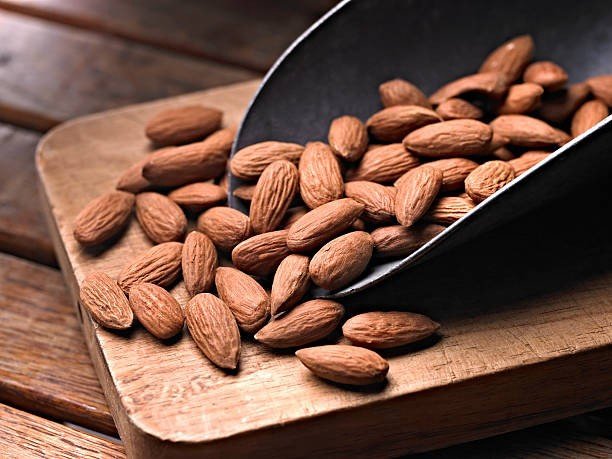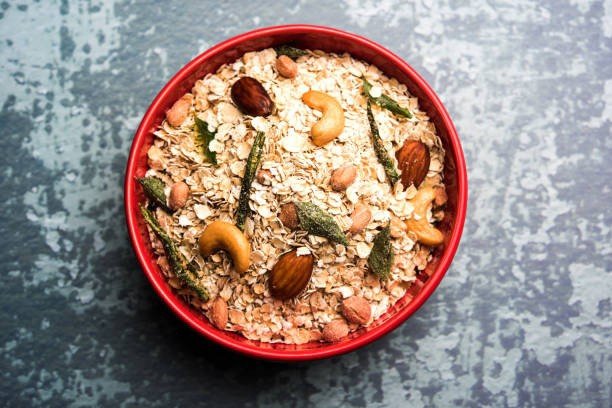
1. Spinach

Due to its high vitamin C content and abundance of antioxidants, spinach is a food with tremendous immune-boosting potential. According to a new study on nutrients, vitamin C possesses strong anti-inflammatory and antioxidant properties. These two characteristics lessen oxidative stress and inflammation, strengthening the immune system.
Even if you’re not the biggest fan of spinach, you can still get the same nutritional advantages by adding a handful or two of the leafy green to your favourite smoothie recipe.
2. Almonds

No other nut compares to almonds in terms of its abundance of antioxidants and minerals. Although almonds were once considered to be quite expensive, their price has now decreased due to their popularity, and buying large quantities of almonds at big-box stores may be rather affordable. By soaking almonds in water, mixing the mixture, and then filtering the resulting liquid, you can also produce your own almond milk. Almonds are rich in fibre, protein, magnesium, healthy fats (which help you feel fuller for longer), and vitamin E.
3. Oats

Oats are abundant in soluble fibre and have been related to decreasing cholesterol and blood pressure. Oats contain a lot of beta-glucan and are a wonderful source of carbohydrates. A potent soluble fibre called beta-glucan helps manage blood sugar levels by slowing the digestion of sugar.
In addition, oats are a fantastic source of plant protein that promotes muscle development and repair.
Oatmeal contains a staggering 10 grammes in each half-cup portion, and numerous studies have found that doing so may lower your chance of developing heart disease. With a bowl of oats, you can jump-start your day and your body. Aside from breakfast, oats make a great pre- or post-workout meal.
4. Eggs

Because of their high cholesterol content, eggs have historically generated debate in the nutrition community, although they continue to rank among the healthiest foods.
Numerous minerals, such as B vitamins, choline, selenium, vitamin A, iron, and phosphorus, are abundant in whole eggs.
Additionally, they contain a lot of superior protein.
Zeaxanthin and lutein, two powerful antioxidants found in eggs, are proven to preserve eye health and eyesight.
Despite concerns about excessive cholesterol and egg intake, research shows no appreciable increase in the risk of heart disease or diabetes from consuming up to 6–12 eggs per week.
In fact, eating eggs may improve a person’s excellent HDL cholesterol, which may reduce their risk of heart disease. In order to get a firm conclusion, more research is required.
5. Seafood

Fish is full of protein and rich in good fats, in contrast to many animal products that are high in saturated fats, such as red meat and processed meats, which might increase the risk of heart disease. According to the NIH, omega-3 fatty acids, namely the kind found in fish and other seafood, are particularly good for our health. These two kinds, eicosapentaenoic acid (EPA) and docosahexaenoic acid (DHA), are utilised more effectively than alpha-linolenic acid (ALA), the third kind of omega-3 that originates from plant sources like flaxseed and almonds. According to the NIH, omega-3 fatty acids may help lower your risk of heart attack and stroke, lessen depression, and support child development.
6. Green Tea

Chinese green tea, which has a light caffeine content, has a variety of health advantages. Anti-inflammatory polyphenolic chemicals and antioxidants are abundant in green tea.
Epigallocatechin gallate, sometimes known as EGCG, is one of many catechins, which are potent antioxidants found in green tea. You may be protected from chronic illnesses including heart disease, diabetes, and cancer thanks to these substances.
Try combining green tea with herbal tea or warm water rather than boiling water to make it more pleasant.